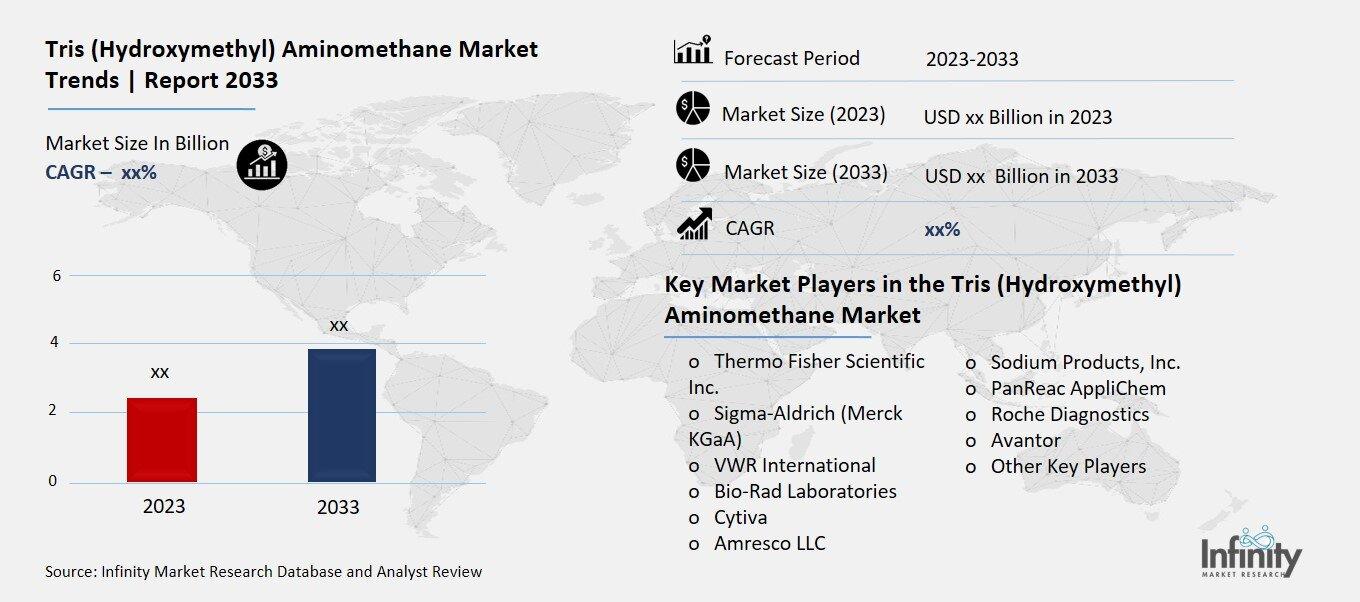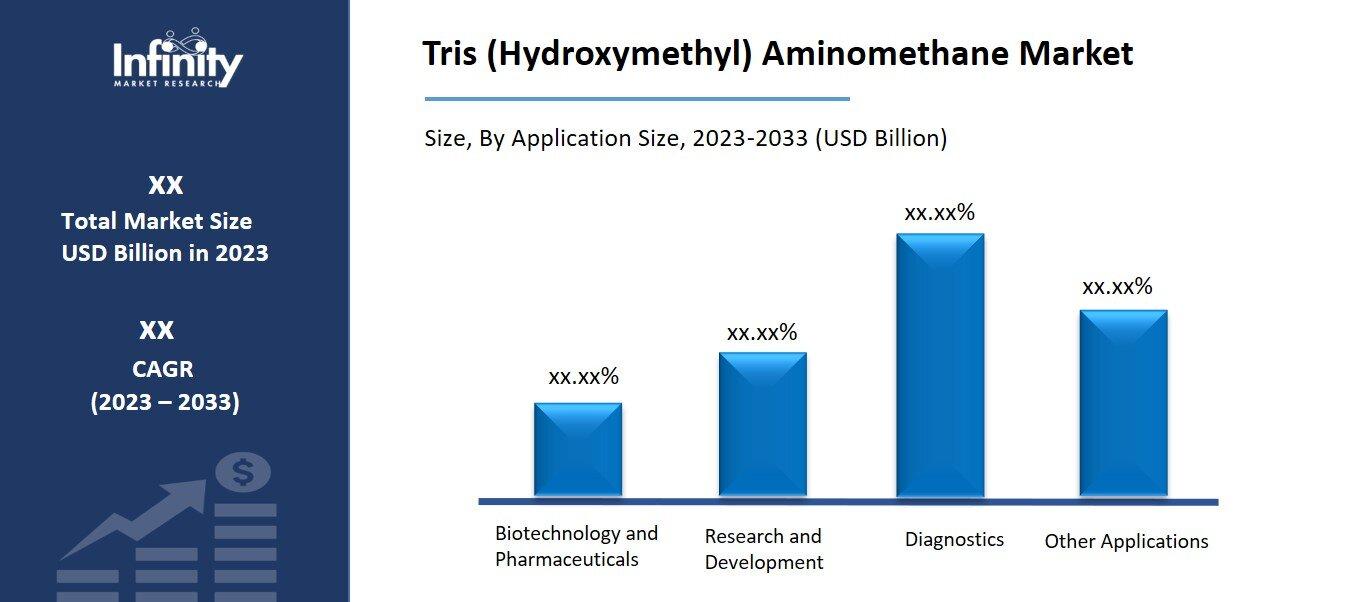
🔐 Secure Payment Guaranteed
Safe checkout with trusted global payment methods.
🌟 Why Choose Infinity Market Research?
At Infinity Market Research, we dont just deliver data — we deliver clarity, confidence, and competitive edge.
In a world driven by insights, we help businesses unlock the infinite potential of informed decisions.
Here why global brands, startups, and decision-makers choose us:
Industry-Centric Expertise
With deep domain knowledge across sectors — from healthcare and technology to manufacturing and consumer goods — our team delivers insights that matter.
Custom Research, Not Cookie-Cutter Reports
Every business is unique, and so are its challenges. Thats why we tailor our research to your specific goals, offering solutions that are actionable, relevant, and reliable.
Data You Can Trust
Our research methodology is rigorous, transparent, and validated at every step. We believe in delivering not just numbers, but numbers that drive real impact.
Client-Centric Approach
Your success is our priority. From first contact to final delivery, our team is responsive, collaborative, and committed to your goals — because you re more than a client; you re a partner.
Recent Reports
Obesity Management Market
GLP-1 Receptor Agonist Market
Tris (Hydroxymethyl) Aminomethane Market
Global Tris (Hydroxymethyl) Aminomethane Market (By Form, Solid and Liquid; By Application, Biotechnology and Pharmaceuticals, Research and Development, Diagnostics, and Other Applications; By Distribution Channel, Online Sales and Direct Sales, By Region and Companies), 2024-2033
Sep 2024
Chemicals and Materials
Pages: 138
ID: IMR1228
Tris (Hydroxymethyl) Aminomethane Market Overview
Global Tris (Hydroxymethyl) Aminomethane Market acquired the significant revenue of xx Billion in 2023 and expected to be worth around USD xx Billion by 2033 with the CAGR of xx% during the forecast period of 2024 to 2033. The market serves a crucial part in biochemistry and molecular biology. Also, tris serves as a widely used buffer agent in various applications. It maintains stable pH levels in biological and chemical experiments, this makes it vital for processes such as protein purification, DNA/RNA extraction, and cell culture.

To Get An Overview , Request For Sample
North America is expected to acquire most of the share of the market due to its established biotechnology and pharmaceutical sectors, while the Asia-Pacific region is experiencing rapid growth driven by increasing investments in research and development. Key players, such as Thermo Fisher Scientific, Sigma-Aldrich, and Bio-Rad Laboratories, compete on product quality, pricing, and distribution channels, with a notable shift towards online sales as customers seek greater accessibility. The Tris market is expected to grow as the demand for innovative solutions in life sciences continues to rise.
Drivers for the Tris (Hydroxymethyl) Aminomethane Market
Growing Biotechnology and Pharmaceutical Sectors
Increasing investments in research and development in the biotechnology and pharmaceutical industries drive the demand for Tris(hydroxymethyl)amino methane. The need for reliable and effective laboratory reagents becomes necessary because these sectors focuses on developing innovative therapies and vaccines. Tris is widely recognized for its ability to maintain stable pH levels. It is essential during various biochemical processes such as drug formulation and vaccine development. The growing emphasis on biopharmaceutical research has led to a surge in experimental protocols that require precise pH control. Thus, laboratories are increasingly relying on Tris to facilitate complex reactions and ensure reproducibility in their experiments. This trend underscores the integral role that Tris plays in advancing medical science and enhancing the efficacy of new treatments.
Restraints for the Tris (Hydroxymethyl) Aminomethane Market
Price Volatility of Raw Materials
Fluctuations in the costs of raw materials pose a significant challenge for manufacturers in the Tris(hydroxymethyl)aminomethane market, as these changes can directly impact production costs and, subsequently, pricing strategies. The primary components used in the production of Tris are subject to market volatility, which can result from various factors such as supply chain disruptions, geopolitical tensions, and changes in demand for chemical products. When raw material prices rise, manufacturers may face increased operational costs, compelling them to either absorb these expenses or pass them on to customers through higher prices. This pricing strategy can affect competitiveness, especially in a market where alternatives may be available. Furthermore, inconsistent pricing can lead to uncertainty for buyers, potentially influencing their purchasing decisions and long-term contracts. Such market instability may discourage investment and innovation, making it essential for companies to develop strategies for managing costs effectively and maintaining stable supply chains to mitigate the impacts of raw material fluctuations.
Opportunity in the Tris (Hydroxymethyl) Aminomethane Market
Expansion in Emerging Markets
Growing investments in the life sciences sector in regions like Asia-Pacific present significant growth opportunities for Tris(hydroxymethyl)aminomethane manufacturers. As countries in this region enhance their focus on biotechnology and pharmaceuticals, driven by increasing healthcare needs and government support for research initiatives, the demand for reliable laboratory reagents like Tris is on the rise. This growth is fueled by expanding academic research institutions, a burgeoning biotech industry, and a heightened emphasis on drug development and personalized medicine. Additionally, as more multinational pharmaceutical companies establish research facilities in Asia-Pacific, the need for high-quality buffers to support various biochemical processes becomes critical. Manufacturers who strategically position themselves in this evolving market can benefit from increased sales and partnerships, tapping into the region's potential for innovation and technological advancement. Moreover, as the life sciences ecosystem continues to mature, there will likely be further demand for advanced reagents, presenting ongoing opportunities for Tris suppliers to expand their market presence and contribute to scientific progress.
Trends for the Tris (Hydroxymethyl) Aminomethane Market
Integration of Automation and Technology
The incorporation of automated systems in laboratories is significantly influencing the usage of Tris(hydroxymethyl)aminomethane and other reagents, leading to enhanced efficiency in experimental processes. Automation in laboratory settings allows for precise and consistent measurement, mixing, and application of reagents, reducing the potential for human error and variability in results. Automated systems can streamline workflows by integrating Tris into various protocols, such as buffer preparation and sample handling, thereby saving time and increasing throughput. This is particularly beneficial in high-throughput environments, such as pharmaceutical development and genomic research, where rapid and reproducible results are critical. Furthermore, automation facilitates better data management and analysis, enabling researchers to focus on interpretation and decision-making rather than manual tasks. As laboratories increasingly adopt these technologies, the demand for reagents that can be seamlessly integrated into automated systems, including high-quality Tris, is expected to rise, driving further innovation in reagent formulation and application.
Segments Covered in the Report
By Form
o Solid
o Liquid
By Application
o Biotechnology and Pharmaceuticals
o Research and Development
o Diagnostics
o Other Applications
By Distribution Channel
o Online Sales
o Direct Sales
Segment Analysis
By Form Analysis
On the basis of form, the market is divided into solid and liquid. Among these, solid segment held the most of the share of the market. This dominance is largely due to the versatility of solid Tris, which is commonly used in laboratories for preparing buffer solutions on an as-needed basis. Additionally, solid forms are easier to store and generally have a longer shelf life compared to liquid solutions, which often require specific storage conditions. Cost-effectiveness is another factor, as solid Tris is usually more economical for bulk purchasing and shipping.
By Application Analysis
On the basis of application, the market is divided into biotechnology and pharmaceuticals, research and development, diagnostics, and other applications. Among these, biotechnology and pharmaceuticals segment held the most of the share of the market owing to the prominent role of tris in various biotechnological processes, such as drug formulation, vaccine development, and protein purification. The increasing investments in biopharmaceutical research and the rising demand for advanced therapeutics have significantly boosted this segment.

To Learn More About This Report , Request For Sample
By Distribution Channel Analysis
On the basis of distribution channel, the market is divided into Online Sales and Direct Sales. Among these, which segment held the most of the share of the market due to the nature of the products and the needs of end users, such as research institutions and pharmaceutical companies, which often prefer to purchase in bulk directly from manufacturers for consistency in quality and pricing. Direct sales also allow for better customer relationships and support.
Regional Analysis
North America Dominated the Market with the Highest Revenue Share
North America held the prominent share of the market due to the presence of a well-established biotechnology and pharmaceutical sector, significant investments in research and development, and a robust network of academic institutions and laboratories. The region is home to many leading companies that manufacture and supply Tris and other laboratory reagents.
Europe also represents a significant market due to its strong life sciences sector, while the Asia-Pacific region is experiencing rapid growth driven by increasing research activities and investments in biotechnology. However, North America remains the dominant region in terms of market share.
Competitive Analysis
The competitive landscape of the Tris(hydroxymethyl)aminomethane market is characterized by a mix of established players and emerging companies, with major firms like Thermo Fisher Scientific, Sigma-Aldrich, and Bio-Rad Laboratories leading the market. Product differentiation is significant, as companies focus on offering high-purity options, diverse packaging, and additional features to cater to specific applications in biotechnology and pharmaceuticals. Pricing strategies vary, with larger manufacturers benefiting from economies of scale, while smaller firms often target niche markets with premium offerings.
Key Market Players in the Tris (Hydroxymethyl) Aminomethane Market
o Thermo Fisher Scientific Inc.
o Sigma-Aldrich (Merck KGaA)
o VWR International
o Bio-Rad Laboratories
o Cytiva
o Amresco LLC
o Sodium Products, Inc.
o PanReac AppliChem
o Roche Diagnostics
o Avantor
o Other Key Players
|
Report Features |
Description |
|
Market Size 2023 |
USD xx Billion |
|
Market Size 2033 |
USD xx Billion |
|
Compound Annual Growth Rate (CAGR) |
xx% (2023-2033) |
|
Base Year |
2023 |
|
Market Forecast Period |
2024-2033 |
|
Historical Data |
2019-2022 |
|
Market Forecast Units |
Value (USD Billion) |
|
Report Coverage |
Revenue Forecast, Market Competitive Landscape, Growth Factors, and Trends |
|
Segments Covered |
By Form, Application, Distribution Channel, and Region |
|
Geographies Covered |
North America, Europe, Asia Pacific, and the Rest of the World |
|
Countries Covered |
The U.S., Canada, Germany, France, U.K, Italy, Spain, China, Japan, India, Australia, South Korea, and Brazil |
|
Key Companies Profiled |
Thermo Fisher Scientific Inc., Sigma-Aldrich (Merck KGaA), VWR International, Bio-Rad Laboratories, Cytiva, Amresco LLC, Sodium Products, Inc., PanReac AppliChem, Roche Diagnostics, Avantor, and Other Key Players |
|
Key Market Opportunities |
Expansion in Emerging Markets |
|
Key Market Dynamics |
Growing Biotechnology and Pharmaceutical Sectors |
📘 Frequently Asked Questions
1. How much is the Tris (Hydroxymethyl) Aminomethane Market in 2023?
Answer: The Tris (Hydroxymethyl) Aminomethane Market size was valued at USD xx Billion in 2023.
2. What would be the forecast period in the Tris (Hydroxymethyl) Aminomethane Market report?
Answer: The forecast period in the Tris (Hydroxymethyl) Aminomethane Market report is 2024-2033.
3. Who are the key players in the Tris (Hydroxymethyl) Aminomethane Market?
Answer: Thermo Fisher Scientific Inc., Sigma-Aldrich (Merck KGaA), VWR International, Bio-Rad Laboratories, Cytiva, Amresco LLC, Sodium Products, Inc., PanReac AppliChem, Roche Diagnostics, Avantor, and Other Key Players
4. What is the growth rate of the Tris (Hydroxymethyl) Aminomethane Market?
Answer: Tris (Hydroxymethyl) Aminomethane Market is growing at a CAGR of xx% during the forecast period, from 2023 to 2033.

🔐 Secure Payment Guaranteed
Safe checkout with trusted global payment methods.
🌟 Why Choose Infinity Market Research?
- Accurate & Verified Data:Our insights are trusted by global brands and Fortune 500 companies.
- Complete Transparency:No hidden fees, locked content, or misleading claims — ever.
- 24/7 Analyst Support:Our expert team is always available to help you make smarter decisions.
- Instant Savings:Enjoy a flat $1000 OFF on every report.
- Fast & Reliable Delivery:Get your report delivered within 5 working days, guaranteed.
- Tailored Insights:Customized research that fits your industry and specific goals.



